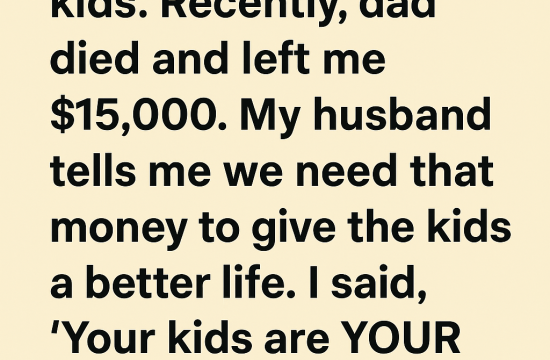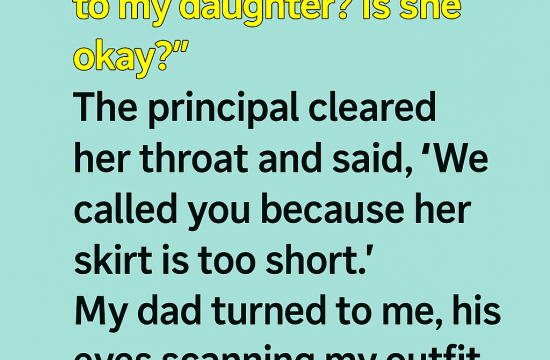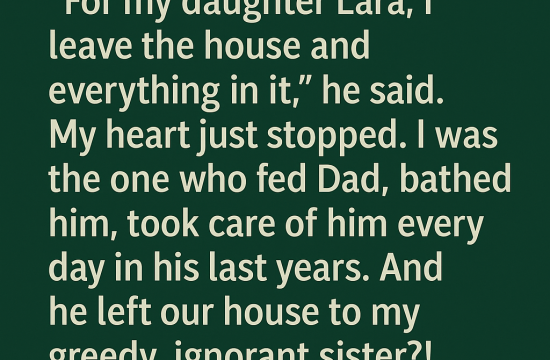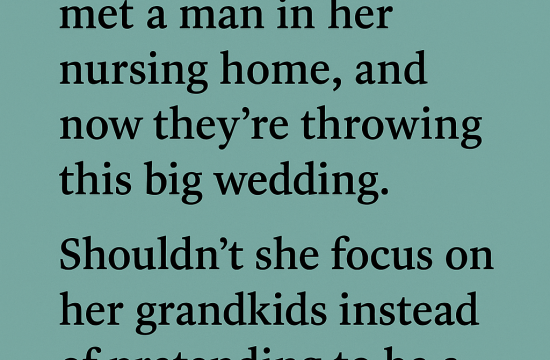My wife and I were both taken aback when we were asked to leave my friend’s wedding after we decided to order pizza because the buffet had run out of food. What began as a lighthearted, spontaneous decision spiraled into unexpected drama, forcing us to question our actions, our friendships, and even wedding etiquette.
We had been looking forward to Tom’s wedding for months. It was a small, intimate gathering of about seventy guests, mostly family. The atmosphere was joyous and warm, the venue decorated beautifully, and the ceremony itself—Tom and his bride Linda exchanging heartfelt vows—was moving enough to draw more than a few tears. Afterward, guests drifted toward the reception area, ready to celebrate.
The open bar was buzzing, tables glowed with bottles of wine, bread, and butter, and people mingled happily. When the emcee announced the buffet, he explained that tables would be called up gradually, starting with family. We didn’t think much of it at the time.
But as we waited, it quickly became clear that people weren’t exactly practicing moderation. Some went back for seconds and even thirds before many tables—including ours—had a chance. By the time our turn came, the buffet trays were nearly empty. We scraped together what little was left, but the portions were disappointing. Hunger gnawed at us, and conversations at our table turned from lighthearted to tense.
Sensing the mood, Tom came over, clearly embarrassed, and apologized. He admitted he hadn’t expected such a shortfall. We reassured him it wasn’t his fault, but the atmosphere was undeniably soured. Then someone at our table half-jokingly said, “We should just order pizza.”
What began as a joke became a real plan. Hungry and fed up, we pooled money and ordered four large pizzas and wings. When the delivery arrived, the smell alone lifted our spirits. We shared generously with nearby tables who had also gone hungry, and suddenly laughter replaced grumbling. For a brief moment, it felt like we had saved the night.
But not everyone saw it that way. Linda’s father, a stern man with an air of authority, approached our table. He asked about the pizzas, his tone more interrogative than curious. I explained honestly—that the buffet had run out, so we’d ordered food. His expression hardened when I didn’t immediately offer him a slice. That single refusal shifted the mood like a lightning strike. Soon, Linda and her family were giving us icy stares, whispering among themselves.
Moments later, Tom appeared again, this time looking pained. He quietly asked us to leave, saying Linda was upset and her father felt “deeply disrespected” by our decision. I tried to defend our choice, pointing out that we’d only ordered food because there hadn’t been enough. But the tension was undeniable, and staying felt impossible. We left the wedding feeling humiliated, angry, and hurt.
A few days later, Tom called. His voice was heavy with guilt. He explained that after talking things through, Linda realized her own family had caused the shortage by taking far more than their share. She was furious—not with us, but with them. To make amends, Linda’s father (after some prodding) agreed to host an “After-Wedding Shindig” for all the guests, promising plenty of food, drinks, and entertainment to ensure no one left hungry again.
As I hung up the phone, I felt a strange sense of closure. What had started as an awkward, humiliating episode had forced the issue into the open. It wasn’t just about pizza or buffet lines—it was about fairness, respect, and making sure everyone felt included. In the end, the drama had led to something better: a celebration where no one would go hungry, and maybe, just maybe, some lessons learned about generosity and pride.











